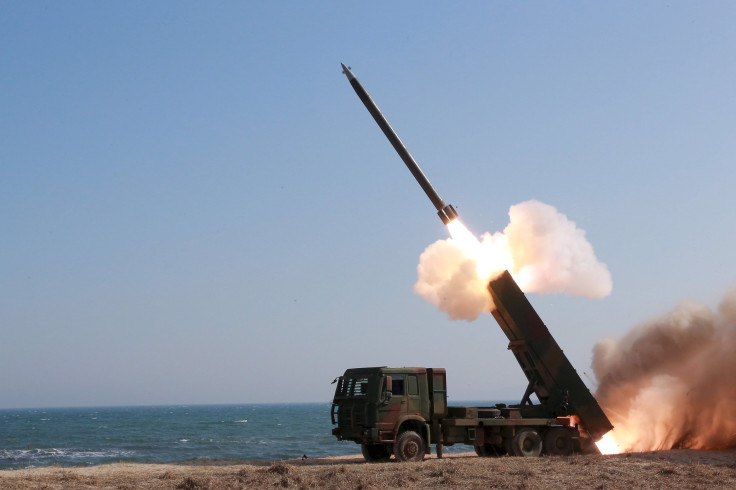Can The US Stop A North Korea Nuclear Attack? Missile Defense System Often Doesn't Work

A system designed to protect the United States from a North Korean nuclear attack won't work, according a report released Thursday. The missile defense system is "simply unable to protect the U.S. public," the report from the Union of Concerned Scientists said, according to the Los Angeles Times.
The report states the system needs rigorous Congressional oversight. It also recommends U.S. President Barack Obama's administration shelves the expansion of the system — called the Ground-based Midcourse Defense system (GMD) — until technical problems are solved.
How bad are the problems? Put simply, "the US missile defense system is a joke," wrote the New York Post. It was designed to protect the U.S. against so-called rogue states like North Korea or Iran.
"The story of this system is a cautionary tale about how the lack of appropriate oversight of a politically charged missile defense program has led to a system in tatters," the report, authored by three physicists with expertise in missile defense, states. The system has cost some $40 billion and been in development for more than a decade.
U.S. missile defense system is 'simply unable to protect the public,' report says https://t.co/EWPD3YmduA pic.twitter.com/5UEfBodiNA
— Los Angeles Times (@latimes) July 14, 2016
The GMD system has deployed 30 interceptors in Alaska and California, with plans for 44 by 2017. Yet the nine times it has been tested post-deployment under "highly scripted," or predictable, conditions, it has failed to destroy its target two-thirds of the time, the report stated.
"After nearly 15 years of effort to build the GMD homeland missile defense system, it still has no demonstrated real-world capability to defend the United States," said Laura Grego, a Union of Concerned Scientists physicist who co-authored the report, in an interview with Reuters.
A lack of accountability and a rush to service in 2004 under the Bush administration caused many of the problems, Grego said. But she added that Obama's efforts to improve oversight while still keeping the system outside normal development procedure hasn't helped.
"Instead of getting something out to the field that worked well or worked adequately, in fact this has been a disaster. It’s done the opposite," she said to Reuters. "The lack of accountability has had and will have real lasting effects, especially for a system … that’s strategically important. It should be held to the highest standards, the highest rigor."
The Los Angeles Times previously reported extensively on the defense system, finding that official announcements have "overstated" the reliability of the costly project and that it has actually gotten less effective over time.
© Copyright IBTimes 2025. All rights reserved.






















